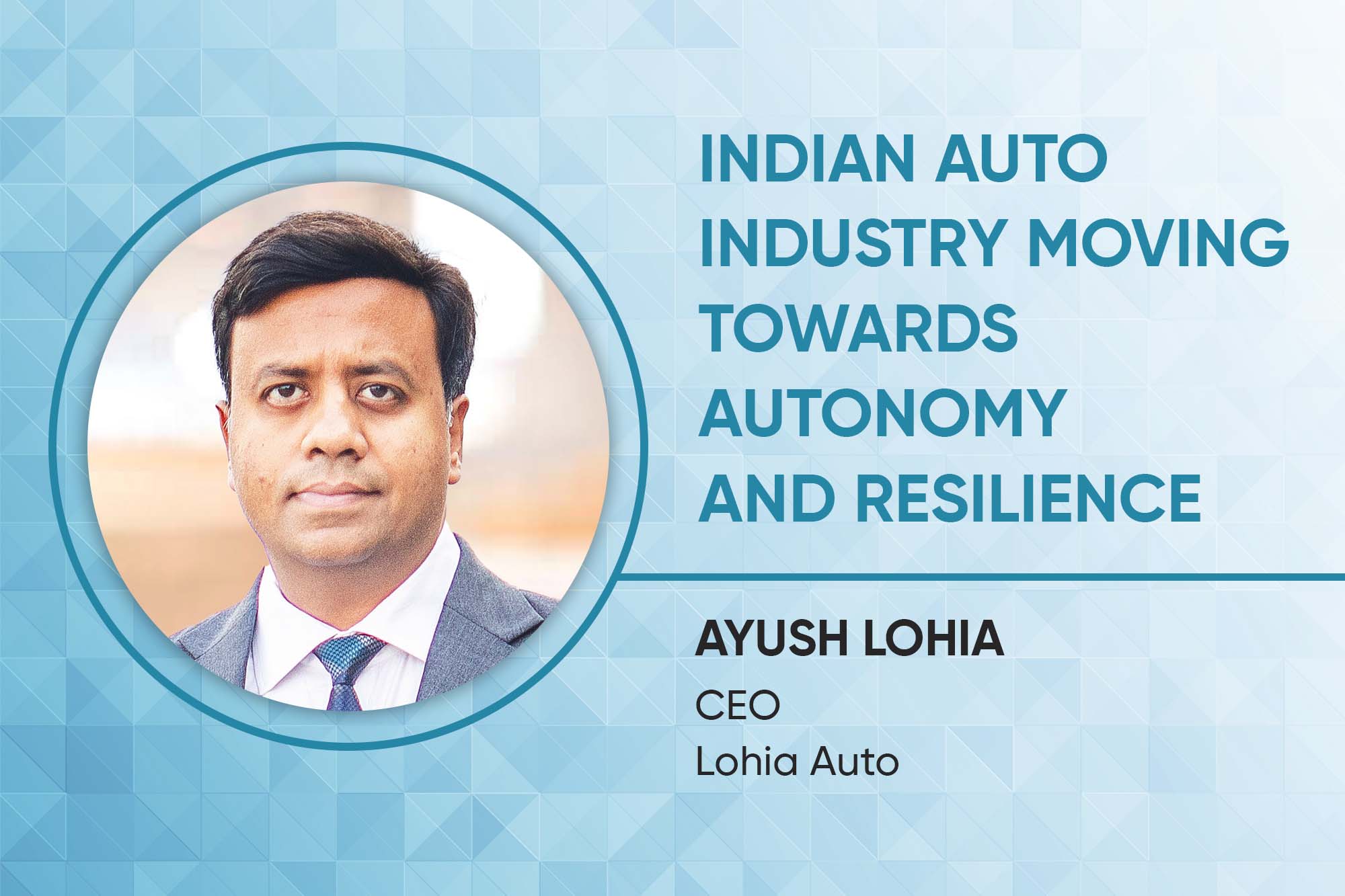Indian auto industry moving towards autonomy and resilience
09-Jul-2024 11:01 am
09-Jul-2024 11:01 am

According to Ayush Lohia, CEO, Lohia, collaboration between industry players and government authorities is essential to address infrastructure challenges in the electric vehicle (EV) ecosystem, fostering supportive policies, standardised protocols, and strategic investments for widespread EV adoption.
Increasing consumer awareness is vital in driving the demand for environmentally friendly transportation options, particularly electric vehicles (EVs). Heightened awareness of climate change and air pollution motivates individuals to prioritise sustainable choices.
Consumers are becoming more informed about the benefits of EVs, including avoiding fluctuations in fuel prices. They also appreciate the low maintenance costs and convenience of home charging. These factors are driving a growing inclination among consumers to switch to EVs. They are also easy to drive, produce no noise, and often come with government incentives. Therefore, efforts to educate the public about the advantages of EVs foster a growing demand for sustainable transportation options.
The electric vehicle (EV) industry in India faces several anticipated challenges. Infrastructure remains a key concern, encompassing the need for a robust charging network to alleviate range anxiety among consumers. Additionally, despite decreasing battery prices, the high upfront cost of EVs poses a challenge to widespread adoption. Regulatory uncertainties, including fluctuating incentives and policy frameworks, can impact investor confidence and hinder long-term planning for manufacturers. Technological advancements and R&D efforts are crucial to addressing battery performance, charging times, and overall vehicle efficiency concerns.
Furthermore, consumer awareness and education initiatives are vital to dispel myths and misconceptions surrounding EVs. Collaboration among industry stakeholders, government bodies, and financial institutions is essential to surmount these challenges for sustainable growth in India’s EV sector.
Industry players must prioritise open communication and proactive engagement with government authorities to address infrastructure challenges within the electric vehicle (EV) ecosystem. This involves active participation in regulatory discussions to advocate for supportive policies, such as EV charging infrastructure development incentives and streamlined permitting processes. EV manufacturers should offer insights into infrastructure needs based on market trends and consumer behaviours, sharing data and expertise to aid governments in planning and implementing strategic infrastructure investments. Collaborative efforts should focus on establishing standardised charging protocols, expanding charging networks, and investing in innovative solutions like smart grid technologies. With increasing cooperative relationships with government authorities, EV manufacturers can help accelerate the transition to sustainable transportation, ensuring the necessary infrastructure is in place to support widespread adoption.
Integrating IoT, AI, and robotics into automobile production processes revolutionises efficiency and quality in the electric vehicle (EV) industry. IoT enables real-time monitoring of equipment and production lines, optimising resource allocation and predictive maintenance. AI algorithms enhance decision-making, optimising assembly processes and minimising errors. Robotics automates repetitive tasks with precision, improving consistency and speed. This integration streamlines production, reducing costs and time-to-market, which is crucial in the competitive EV landscape. Furthermore, it ensures superior quality control, enhancing EVs’ reliability and safety, thus reinforcing consumer trust and satisfaction. IoT, AI, and robotics play pivotal roles in propelling the EV industry forward and driving innovation and sustainability.
The Make in India and AtmaNirbhar Bharat initiatives have reinforced self-reliance in automobile manufacturing. These initiatives have incentivised domestic production, reducing import reliance and fostering indigenous capabilities. The AtmaNirbhar Bharat initiative, in particular, has made a profound impact by encouraging companies to become self-sufficient. As exemplified by our company, which does not import parts for our vehicles, these initiatives have propelled the automobile industry towards greater autonomy and resilience. Through localisation of manufacturing and fostering a conducive ecosystem for domestic production, Make in India and Atmanirbhar Bharat have played pivotal roles in promoting self-reliance in the Indian automotive sector.
We use cookies to personalize your experience. By continuing to visit this website you agree to our Terms & Conditions, Privacy Policy and Cookie Policy.
A PROMONIQUE RESEARCH INDIA INITIATIVE